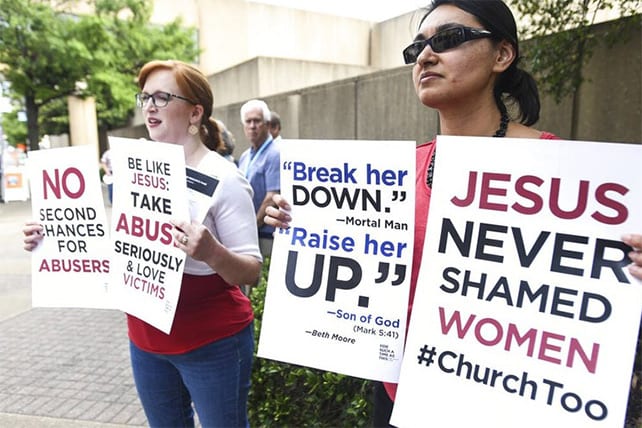Evangelicals, often citing the biblical text, typically maintain that marriage is between one man and one woman. Over 75% tend to worship in racially segregated congregations and favor gun rights and ownership more than other faith groups.
But my interviewees tend toward intense critiques of their previous religious tradition, as well as rejecting the evangelical faith completely.
This data parallels other scholarship unearthing racialized structures within white, American evangelicalism like the work of sociologist Robert P. Jones and religious studies scholar Anthea Butler. Likewise, historian Kristen Kobes Du Mez examines how hypermasculinity is embedded in American evangelicalism.
Expanding religion and politics
My research reveals communities of younger evangelicals who are expanding their religious boundaries and rethinking their stances on culture war issues, as well as questioning the merits of the culture war.
These younger evangelicals are trying to reform their communities from within the tradition as loyal but highly critical members. Sometimes these groups are called “emerging evangelicals” or “progressive Christians,” with some debating whether “evangelical” as a label is redeemable.
I observed several younger evangelicals working within their religious communities to encourage acceptance of those outside of the Christian tradition as co-religionists on similar faith paths. They herald interfaith interactions as positive. One interviewee proudly detailed to me how her church partnered with the local imam and Muslim community to educate each other on their religious practices and volunteered together at a local food bank. This kind of attitude typically is resisted by their older evangelical counterparts, as I learned in previous research. Many traditional evangelicals believe that their faith is the sole path to religious redemption, and interfaith cooperation might harm their followers.
Additionally, some younger evangelicals tend toward adopting spiritual resources outside of the Christian tradition. Whether incorporating meditation techniques or yoga, my interviewees highlighted the ways in which they are exploring their religious and spiritual beliefs.
This contrasts with older evangelicals who perceive their tradition as providing all necessary resources for spiritual growth and reject any outside or Eastern influences. One interviewee noted that she had to change evangelical churches after her evangelical church prohibited her from being both a church member and a local yoga instructor.

